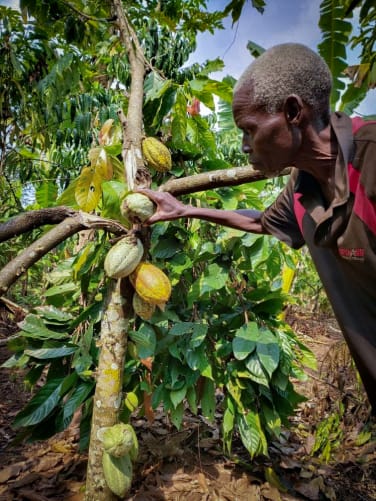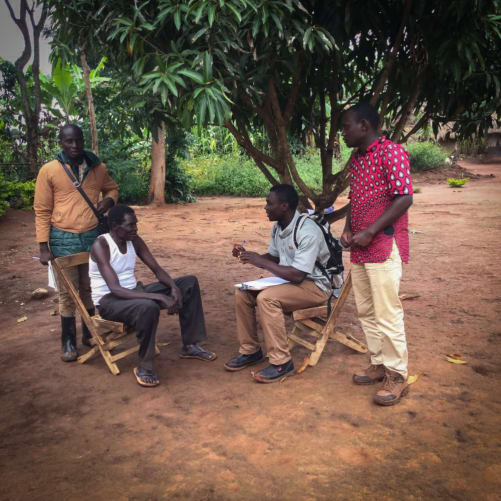
Learning opportunities for farmers in Uganda are rare.
Imagine you are a farmer and your group would like to go organic. Unfortunately, you lack the knowledge about how to start and then implement it successfully. Also, you don’t have a smartphone available to watch videos online. Your government does not offer any help to support dedicated farmers like yourself in their desire to go organic. This is the reality of many farmers in Uganda. While they are interested in learning about and obtaining the benefits of organic farming, they face great difficulties in getting started.
Joining forces for the future.
Brasio, Martin, and Lauben have seen the positive change that organic agriculture can bring for Ugandan farmers. The three are agronomy graduates with experience in organic crop husbandry and committed to support farmers in Uganda in converting to certified organic farming.
They have partnered with a group of farmers around lead-farmer Joseph Lutabi, currently converting to organic certification in Mukono District. These farmers grow cocoa, coffee, and fruits like mango and pineapple for export markets, together with diverse vegetables and staples for their own household consumption. Once certified, these farmers will receive a higher price for their export products and consequently improve their living standard. Also, the environment and farmers’ health will benefit from a reduced use of agro-chemicals.
However, the farmer group faces many challenges with the conversion, because successful organic agriculture is a knowledge-intensive production system. Knowledge they largely still lack.
So far, Brasio, Martin, and Lauben have interviewed 40 farmers from the group to find out exactly which training needs they have and how a training needs to be organized for them to get the most out of it. They found out that farmers especially require assistance regarding the management of pests and diseases with organic approaches as well as increasing their soil fertility.
Thank you for your support!
With these funds, the farmer group around Joseph Lutabi will receive support from Brasio, Martin, and Lauben, who will provide regular group trainings and individual advisory service for 3 months. Additionally, a demonstration plot will be established on which farmers can jointly try new management practices.
Your support will directly benefit the farmer group around Joseph Lutabi in Uganda without losses through intermediate administrative steps and provide them with the knowledge they need for their organic certification. In the long term, we plan to establish collaborations with export companies to continue the advisory service for farmers. Your support ultimately benefits yourself when you buy organic coffee or cocoa in the supermarket, because you know that the farmers behind it have acted well and with the necessary knowledge.




